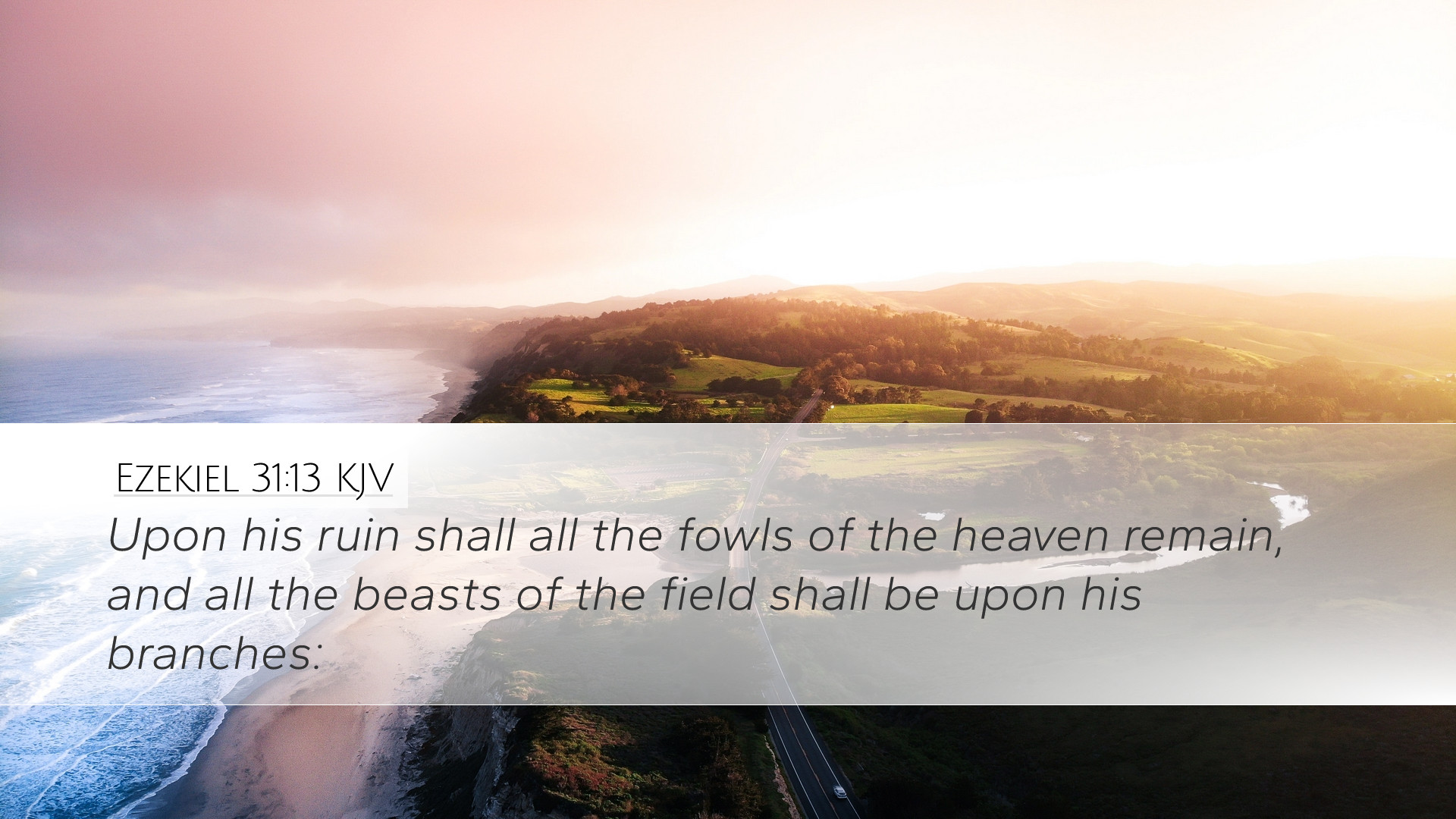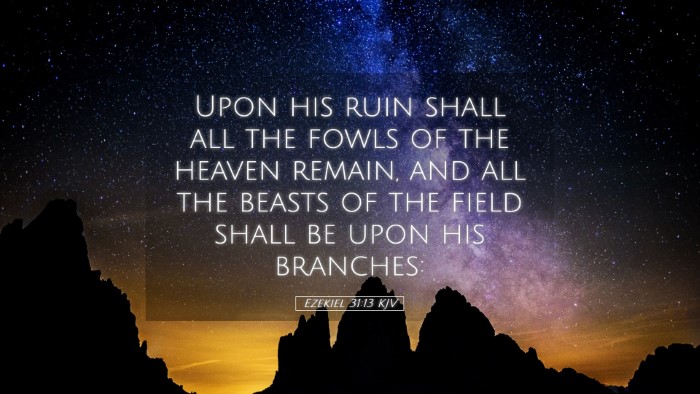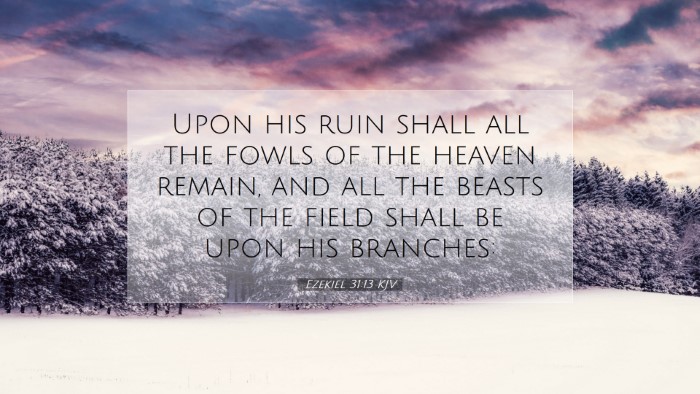Bible Commentary on Ezekiel 31:13
Ezekiel 31:13 (KJV): "Upon his ruin shall all the fowls of the heaven remain, and all the beasts of the field shall be upon his branches."
Contextual Overview
The prophecy of Ezekiel, particularly in chapter 31, is rich with imagery and symbolism, reflecting on the pride and downfall of nations, specifically Egypt. This particular verse serves as a closing statement to a metaphorical narrative illustrating the fate of powerful entities after their demise.
The extensive comparison of Egypt to a magnificent cedar tree signifies its grandeur and strength, cultivated over the years. The imagery of the fowls of the heaven and the beasts of the field gathered upon the fallen tree points towards themes of judgment, loss, and the inevitability of humble endings, applicable across both individual and national contexts.
Commentary Insights
Matthew Henry’s Commentary
Matthew Henry asserts that the destruction of this mighty tree symbolizes the fall of dignified powers and the end of their grandeur. He notes that the fowls and beasts resting upon the branches are indicative of those who come to take advantage of a fallen structure. This reflects the earth's natural order of utilizing what remains after a great fall. Henry emphasizes the moral lesson that power, however mighty, is transient; the true strength lies in humility and recognition of God's sovereignty.
Albert Barnes’ Notes
Albert Barnes elaborates on the connection between this verse and the fate of empires. He highlights that the imagery of the fowls illustrates the aftermath of destruction, when those who were once in awe of the mighty become participants in its ruin. Barnes suggests that the presence of various creatures signifies the universal nature of God’s judgment—everyone bears witness to the downfall of the proud. He stresses that the natural world demonstrates the principle that failure comes to those who do not recognize their limitations and end up in direct opposition to divine authority.
Adam Clarke’s Commentary
Adam Clarke posits the interpretation of this verse in light of God's wrath against Egypt. He notes that the 'fowls of the heaven' symbolize nations and peoples ready to exploit the resources left behind by the fallen. Clarke underscores the inevitability of decay that follows pride, indicating that those who have lived in arrogance will ultimately suffer the consequences. He asserts that God's judgment does not merely destroy but also serves as a warning to others. The verse invites reflection on mortality, pride, and the sovereignty of God, reminding the faithful to cultivate humility and honor in their lives.
Theological Reflections
The implications of Ezekiel 31:13 extend beyond a historical context; they resonate with ongoing theological discourse regarding pride, power, and divine judgment. This passage challenges readers—both laity and clergy—to examine the structures of power they engage with and to recognize the futility of prideful self-assertion against God’s purposes.
The symbol of the fallen tree invokes reflection on ecclesiology and community life within the church. It serves as a reminder that regardless of growth or standing, neglecting dependence on God can lead to destructive consequences. This duality of majesty and ruin serves as a cautionary tale against the allure of worldly power.
- Humility: The call to humbleness before God and acknowledgment of His supremacy over all creation.
- Judgment: The understanding that all nations, regardless of their might, will face divine reckoning.
- Community Responsibility: A reflection on how communities must care for one another, even in the face of decline.
Practical Applications
For pastors and leaders, Ezekiel 31:13 provides a poignant reminder to lead with humility and to counsel the faithful against the allure of seeking power for its own sake. It is within this framework of dependency and humility that the church thrives, rather than within the structures of power defined by the world.
For scholars and students, this passage encourages critical analysis of historical and contemporary power structures in relation to biblical texts. Engaging deeply with the themes of pride, judgment, and restoration can enrich theological education and discourse.
Ultimately, Ezekiel 31:13 is not merely a prophetic statement about the ancient Near Eastern nations but a timeless lesson on human nature, the dangers of pride, and the steadfastness of God's dominion over creation. As such, it calls all believers to a posture of reverence and humility before the God who brings low the exalted yet raises up the humble in heart.


